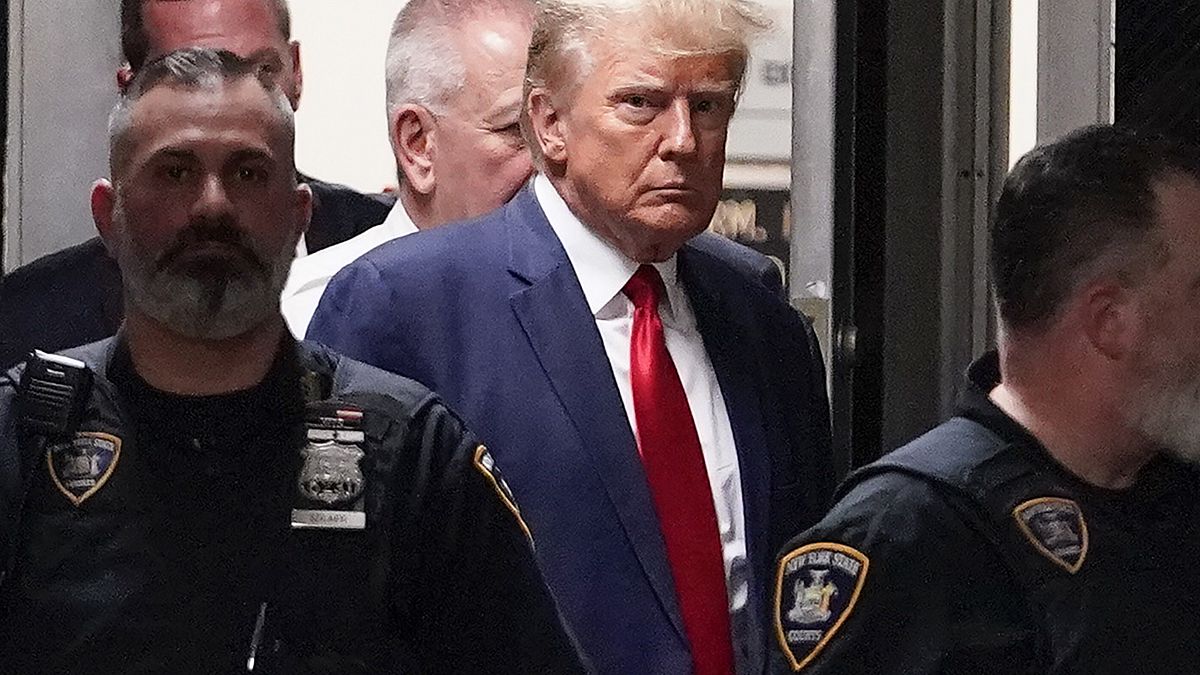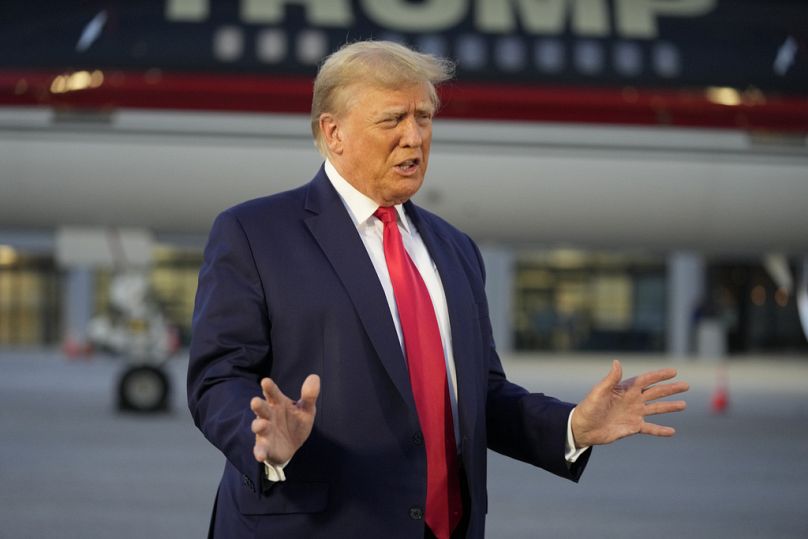Criminal and civil trials are heavy on Trump's agenda for 2024 but the former president, still pleading his innocence, continues to be the favourite candidate for Republican voters ahead of the US presidential elections
On the 4th of March, 2024, former US president Donald Trump will face his first criminal trial.
District Judge Tanya S. Chutkan is in charge of the process against the businessman in Washington, where he is being prosecuted for allegedly trying to overturn the 2020 presidential election result.
She dismissed a request by Trump's defence team to postpone the process until after the next poll, which will be held in November 2024. Trump is still the favourite Republican candidate, his representatives had requested that the trial begin in April 2026.
The March date is one day before Super Tuesday, the closest thing in the United States to a national primary, since more than a dozen states, both Republican and Democratic, will simultaneously hold internal processes to choose their candidates.
The trial in Washington
The former president stands charged in Washington DC on four counts: conspiracy to defraud the United States, conspiracy to obstruct an official proceeding, obstruction and attempt to obstruct an official proceeding, and conspiracy against rights.
For the first of the charges, he could receive a maximum sentence of five years in prison, for the second and third, twenty years in prison respectively, and for the fourth, ten years.
If the judicial timetable goes to plan and the jury finds him guilty, Trump's electoral career would enter uncharted territory, since the US Constitution does not provide a precise road map for the case of a newly elected president serving or facing a prison sentence.
President and convict?: The questions generated by the 'Trump case'
For Greg Swenson, president of Republicans Abroad in the UK, it is "very unlikely" that the former president will end up behind bars.
"Even if there are convictions, they will be appealed and probably could be overturned on appeal," Swenson says, adding: "There is a possibility that [Trump] could be convicted of one of these alleged crimes or one of these charges, but again, he's not likely to go to jail."
However, the analyst also admitted that this possibility, if it materialises, would drag the United States into an unprecedented episode in its history. Scott Lucas, Professor of American Politics at the University of Birmingham, agreed with Swenson on this point.
"Trump can run for president even if he is a convicted felon. There is nothing in the Constitution that prevents him from doing so. There is a possibility that he could be convicted of one of these alleged crimes. In the hypothetical case that did happen, he could still run for the elections. Now, how he would execute his role as president is unknown because this situation is unprecedented."
The importance of the Georgia trial
The announcement of the Washington trial came a few minutes after it became clear that the indictment against Trump and 18 other defendants in Georgia for trying to reverse the results of the 2020 elections in that state, would take place on the 6th of September.
The trial, the date of which is yet to be determined, could be crucial for the fate of the former president. It all lies in the difference between a federal crime and a state crime.
According to the American professor, no sitting president can use his executive powers to reverse a court decision against him in Georgia or in any other state.
"For that reason, the fact that he faces hundreds of years in prison on the 13 felony charges in Georgia is, in some ways, more serious than the hundreds of years he faces in the other cases," Lucas concluded.
Swenson, for his part, explained that the figure of pardon at the state level does exist but it is up to the governors to grant it if the person assumes the crimes and expressly shows "signs of repentance".
The other trials: where and when
Trump has also pleaded not guilty in the other cases for which he is charged: for irregular payments to the porn actress Stormy Daniels to silence her during the 2016 election campaign about their 'affair' in the past, for illegally taking classified papers with him from the White House, and for the assault on Capitol Hill.
The start of the process for the irregular payments to Daniels is set for the 25th of March, 2024 in New York.
The trial in Florida for the classified papers he took from the White House to his Mar-a-Lago mansion is scheduled for the 20th of May, 2024.
But despite the serious accusations against him, the former president pleaded not guilty and continues to be the front-running presidential candidate among the Republican ranks, according to polls.

